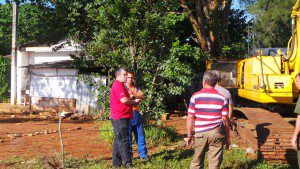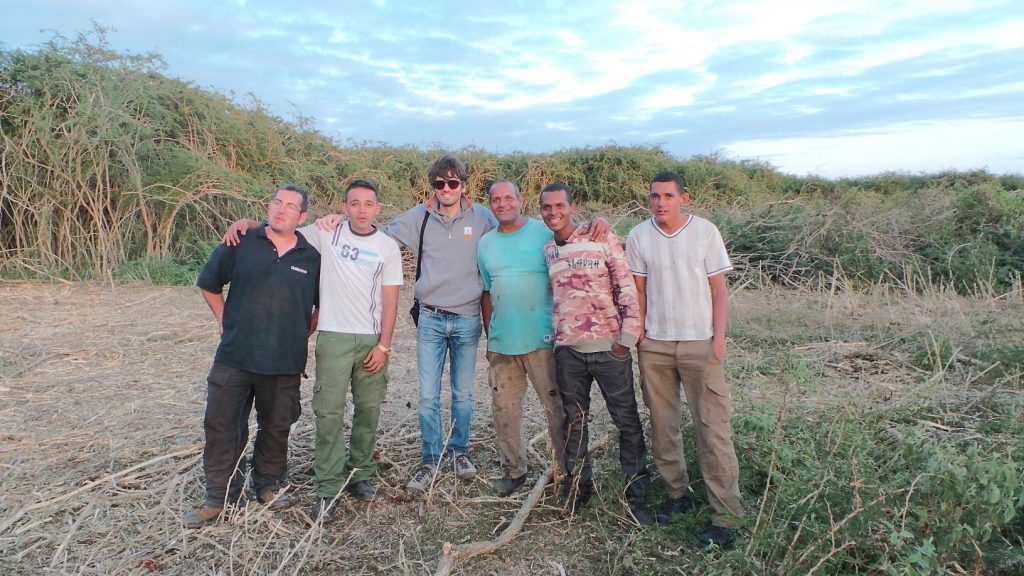After four years work in Cuba a group including a specialist from SRUC’s Barony Campus near Dumfries has finally achieved their goal, producing renewable energy while returning abandoned sugar cane land to food production.

Paul Fotheringham is a Senior Instructor at Barony specialising in forestry mechanisation. He has spent weeks at a time in Cuba training local operators to use the heavy equipment needed to turn what had become a woody wilderness back into farm land, bringing jobs and income to the local economy.
Paul’s colleague Julian Bell, Senior Business Consultant with SAC Consulting has been involved with the project since its inception.
“Following the fall of the Soviet Union, demand for Cuban sugar collapsed leading to millions of hectares of land being abandoned and subsequently becoming infested with an invasive non-native woody weed called Marabu. Imagine gorse, 20ft high, with stems as hard as mahogany, growing 6ft a year and you quickly appreciate why the Cuban farmers armed with hand tools and old Soviet tractors have been overwhelmed.”
Julian and Paul were tasked by UK investors Havana Energy and their Cuban joint venture partners to develop an economic method for harvesting and processing the weed for use in a series of bioenergy plants planned for sugar mills across Cuba. This work was also supported by SRUC through its International Engagement Fund.
They had to find biomass equipment tough enough yet capable of high work rates. It was a challenge, especially because they could not turn to US suppliers due to long standing sanctions. They scoured Europe for the right design and following their most recent trial in December believe they have found suitable equipment. Further improvements are already planned to boost productivity”.
Paul’s task was to advise on machine operation and maintenance.
“The workers are capable and enthusiastic with some excellent mechanics”, he explains. “What they lack is experience of modern equipment. The Soviet era machinery they are used to is very basic but it does withstand a lot of punishment. Not so new machinery with sophisticated engines and electrical systems, so this will be the focus of training and support”.
Once cleared of Marabu the land will be returned to food production and this was the final piece of the jigsaw achieved in a trial just before Christmas.
“The Cubans were going wild with excitement as they saw twenty years of neglect overturned,” says Julian Bell. “From scrub to excellent farmland – all in a matter of hours, thanks to investment, training and new machinery. For a country that imports 70% of its food and much of its energy it was an historic moment and came at an auspicious time with the thawing of relations between the US and Cuba.”
Overall this is a project the SRUC duo believe will bring change to benefit the Cuban people. It will provide affordable electricity, tackle the problem of so much prime land lying unused, help boost food production and create much needed jobs.
Paul is on the left of both pics. He is with Cuban trainees.






